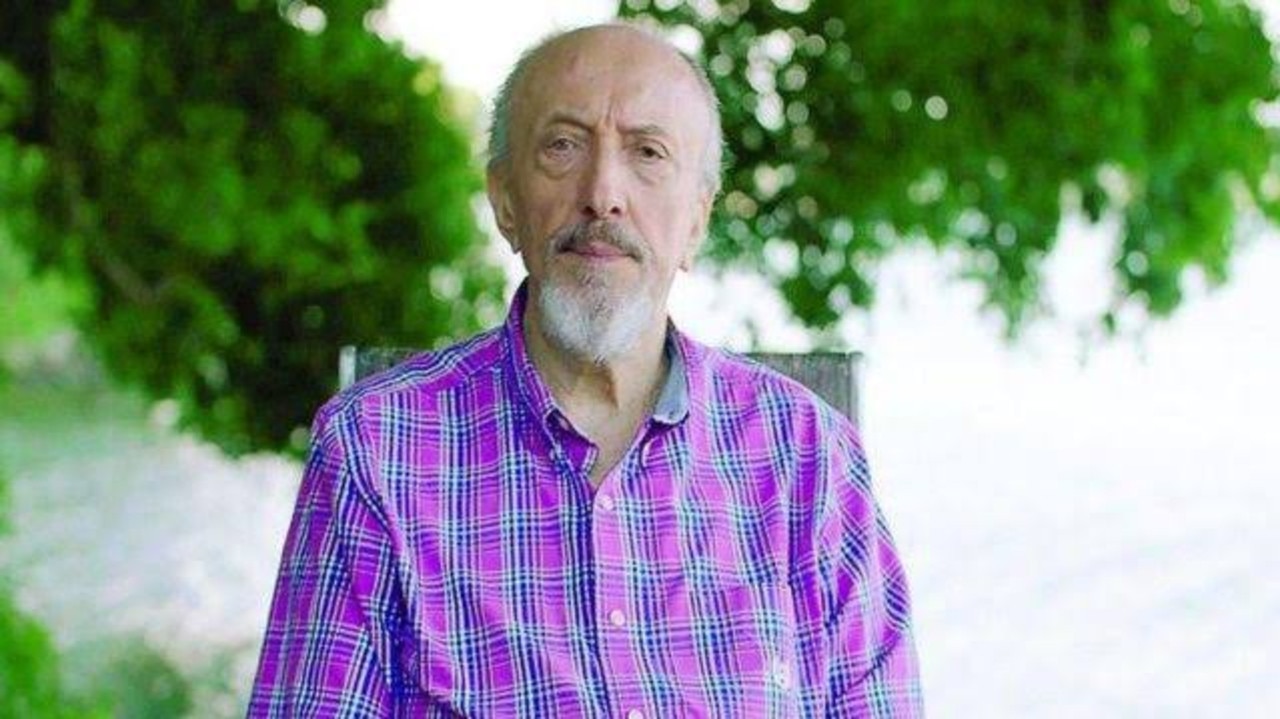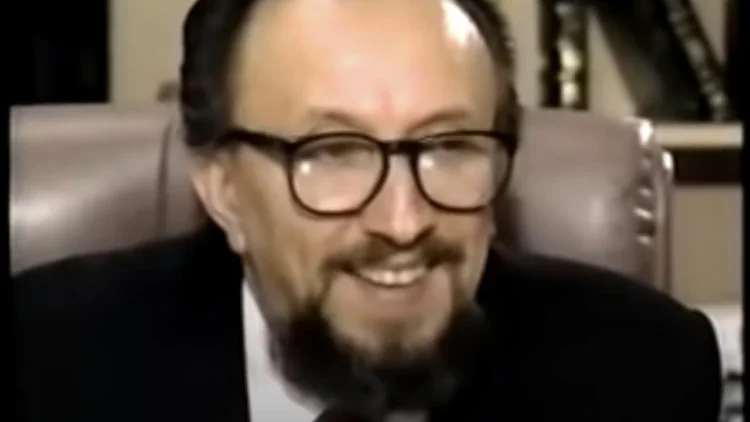By Aaron Miller-
The incredible story of a Romanian economist who won the lottery 14 times is spreading on Youtube, and multiple news sites, with the too good to be true magical story of mathematical extra ordinary genius story raises the eye brows of everyone who hears it.
The odds of winning the lottery are astronomically low in any country low. In the Uk, it is estimated at 1 in 14 million, but the chance of you winning the Euro Million Lottery is 1 in 139,838,160.
Yet, Romanian economist, Stefan Mandel (pictured), used a number of investors and a syndicate – named the International Lotto Fund or ILF – yielding a total of 14 lotteries around the world.
Interestingly, he was not publicised after each of the amazing encounters, but his mind boggling story is now intriguing his millions of hearers and readers.
Mandel, now 89, convinced a group of investors to buy into the scheme over several years.
He created algorithms that would generate and print the millions of different ticket groups he needed, which some lotteries allowed people to do at the time.
Using stacks of tickets printed and ready to go, Mr Mandel and his team waited for a big enough jackpot, at which point they would purchase those tickets in shops.
Mr Mandel cleaned up in about 12 smaller lotteries in Australia, before setting his sights on jackpots in the US that far outstripped anything he’d won so far.
In an interview available on YouTube, Mandel explained: “Theoretically, anybody can buy all the possible combinations. Any high school boy or girl can calculate those combinations. “Nobody has ever developed a logistical system to lodge such a large amount of play slips.
“We were the only winners and that was it.”
Eventually, Mandel targeted a lottery in Virginia, where the rules around picking six numbers between one and 44 meant they only had 7,059,052
The Romanian-Australian mathematician, along with a small team of investors, discovered an extraordinarily simple way to hack the system in the 1980s and ‘90s.
Mr Mandel’s first two wins were in his home country of Romania, where he was saving up to escape the then-Soviet Union, before he cleaned up another dozen times Down Under.
Mr Mandel’s system was stunningly straightforward and relied on very little of his mathematical training. His attempts in America, though, were his downfall.
The odds of winning the jackpot in the Australian Powerball, for instance, are about one in 76,767,600, according to Lottoland. If you decide to double your chances by buying two tickets, the odds are still only 2 in 76,767,600.
Mr Mandel, now 89, convinced a group of investors to buy into the scheme over several years.
He created algorithms that would generate and print the millions of different ticket groups he needed, which some lotteries allowed people to do at the time.
With stacks of tickets printed and ready to go, Mr Mandel and his team simply waited for a big enough jackpot, at which point they would purchase those tickets in shops.
Mr Mandel cleaned apparently cleared about 12 smaller lotteries in Australia, before setting his sights on jackpots in the US that far outstripped anything he’d won so far.
Though he won millions of dollars throughout the scheme, it was a true case of flying too close to the sun — aiming for those massive lotteries in the US was his downfall.

Aussie mathematician Stefan Mandel won the lottery 14 times. Image: Twitter
The FBI and CIA launched investigations into his scheme, but Mr Mandel was cleared.
Of particular interest to Mr Mandel was the Virginia Lottery, which was new at the time and only used numbers 1 to 44 in its draws. That meant there were only 7,059,052 possible combinations — far fewer than the 25 million or higher that his team was used to.
When the jackpot reached US$15.5 million — Mr Mandel ordered thousands of investors to buy out the tickets in bulk.
After two days of purchases, the group had about 6.4 million of the possible 7 million combinations needed to guarantee them the jackpot. Luckily, the odds were still in Mr Mandel’s favour and he won the Virginia Lottery, too.
The FBI and CIA spearheaded an investigation into Mr Mandel, but no wrongdoing was found. Virginia Lottery had no choice but to pay up.
In February 1992 that his syndicate went for a jackpot of $27m, and because they had done every ticket imaginable, they scooped up $900k in additional prizes for the tickets which placed second, third, fourth and so on.
14 international agencies investigated him and the ILF – including the CIA and FBI – but both were cleared of any wrongdoing.
Fascinating Dream
The idea of winning a life-changing sum of money with a small investment has always been a fascinating dream . Many individuals have sought ways to increase their chances of winning, including turning to mathematics and statistical analysis. This essay explores the question of whether the lottery can truly be won using mathematical techniques.
Game Of Chance
Lotteries are typically games of chance, where numbers are randomly drawn from a pool. Players must match these numbers to win the jackpot or other prizes. The randomness of the drawing process makes predicting the outcome challenging.
Mathematical techniques have given rise to various lottery systems and wheeling methods. T involving selecting specific combinations of numbers to cover a broader range of possibilities. While such systems can increase the probability of winning smaller prizes, they do not fundamentally alter the overall odds of hitting the jackpot. They simply provide a systematic approach to playing.
Despite efforts to use mathematics to gain an edge in the lottery, the fundamental nature of randomness makes it difficult to predict the winning numbers accurately. Lottery drawings employ various techniques, such as mechanical ball-draw machines or random number generators, to ensure a fair and random selection process. Predicting truly random events is nearly impossible, rendering mathematical techniques largely ineffective in winning the lottery.
Although certain strategies and systems can enhance the likelihood of smaller wins, they do not fundamentally alter the overall odds of winning the jackpot. Ultimately, participating in the lottery should be viewed as a form of entertainment rather than a reliable investment or a guaranteed pathway to wealth.
Mr Mandel’s feat is incredibly so rare that the chances of him actually winning the lottery as many times as he did are similar to the chances of a rich man paying all the relevant witnesses and corroborators to falsely claim that it happened.
Except that in this case, it is meant to have actually happened, meaning impossible things happen!




